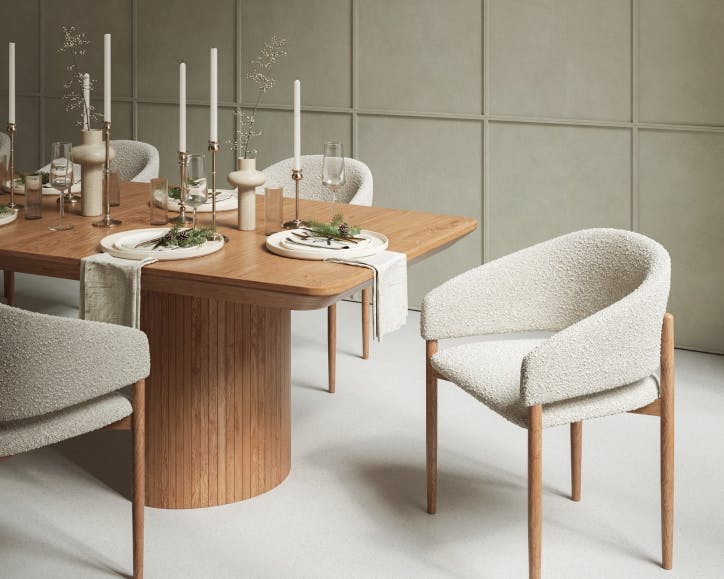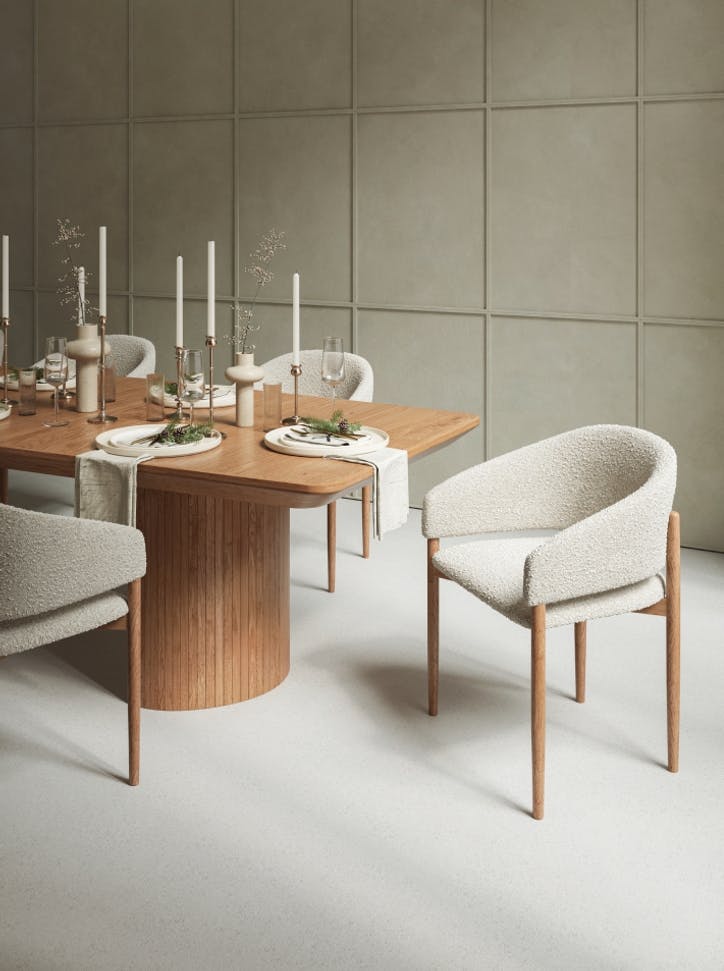
What is Feng Shui?
Feng Shui, literally translating to "wind and water," is based on the Taoist understanding of nature, particularly the idea that the land is alive and filled with Chi, or energy. This practice involves arranging buildings, objects, and spaces to achieve balance and harmony between individuals and their environment. It's often used to orient buildings—spiritually and sometimes physically—towards streams, rivers, or other aspects of the natural landscape.
Principles of Feng Shui
The principles of Feng Shui are guidelines that help practitioners bring balance into a space. These include:
Yin and Yang
A balance between two forces, Yin and Yang are fundamental to Feng Shui. Yin is passive, calm, and relaxed, while Yang is active, energetic, and hot. A balanced space reflects a mix of both. For example, a bedroom should have more Yin to promote rest, while a workspace should have more Yang to encourage productivity.
The Five Elements
Wood, Fire, Earth, Metal, and Water are used in specific areas according to the Bagua map to enhance energy. Each element has unique characteristics and influences different aspects of life. Properly balancing these elements in your space can promote harmony and well-being.
Chi
Chi is the life force energy that plays an essential role in Feng Shui. Good Chi flow is promoted to improve health, prosperity, and relationships. Techniques such as decluttering, proper furniture arrangement, and the use of colors can help enhance the flow of Chi. For instance, placing a water feature near the entrance of a home can attract positive Chi.
What is Chi?
Chi is the life force energy that permeates every living thing. In Feng Shui, maintaining a smooth and flowing Chi is crucial to ensuring harmony and good health. Stagnant or blocked Chi can lead to negativity or ill health. Techniques such as decluttering, proper furniture arrangement, and the use of colors can help enhance the flow of Chi.
Techniques to Improve Chi Flow
Decluttering: Removing unnecessary items can prevent stagnant Chi.
Proper Furniture Arrangement: Ensuring furniture placement allows for easy movement promotes better Chi flow.
Use of Colors: Different colors can influence Chi. For instance, red can enhance energy and passion, while blue promotes calm and relaxation.
The Commanding Position
The commanding position is one of the key concepts in Feng Shui. It refers to the placement of furniture in a way that maximizes the Chi flow, particularly key furniture pieces like the bed, desk, and stove. The idea is to face the main door or enter a room without being directly in line with it. This position is believed to invite positive energy and provide control over the environment.
Applying the Commanding Position
Bed: Position your bed diagonally across from the door, not directly in line with it.
Desk: Place your desk so you can see the door but are not directly in line with it.
Stove: The stove should be positioned to allow the cook to see the door without turning their back to it.
Bagua Map and Floor Plan
The Bagua map is an essential Feng Shui tool for analyzing a space's energy. It's an eight-sided grid containing symbols that correspond to different life areas. You overlay the Bagua map on your floor plan to identify how different sections of your space correspond to specific aspects of your life.
Areas of Bagua
- Family (Zhen): Located in the east sector of the home, this area influences family relationships and health. It is associated with the Wood element.
- Xun (Wealth): This area affects wealth and prosperity and is found in the southeast. Enhancing this sector with items symbolizing abundance is believed to attract financial security.
- Tai Qi (Health): Located at the center of the Bagua, this area impacts physical and mental health. It is crucial to keep this area free of clutter and well-balanced.
- Quan (Helpful People): Situated in the northwest, this sector helps attract helpful people and benefactors into your life. It is associated with the Metal element.
- Dui (Children): This area is in the West and influences creativity and children. It can be enhanced with items that promote creativity.
- Gen (Knowledge): Found in the northeast, this sector affects personal growth and knowledge. Enhancing this area can help improve focus and education.
- Li (Fame): Located in the south, this sector affects reputation and fame, influencing how others perceive you. It is associated with the Fire element.
- Kan (Career): The north sector, associated with Water, influences career and life path. Keeping this area flowing with positive energy supports career advancements.
- Kun (Partnerships): In the southwest, this area influences romantic relationships and partnerships. It is often enhanced to improve or attract relationships.
Five Elements in Feng Shui
The five elements in Feng Shui—Wood, Fire, Earth, Metal, and Water—are used to create balance and harmony in a space. Each element represents different qualities and areas of life.
Earth
The Earth element stabilizes and grounding affects physical strength and order. Earthy tones and ceramic or clay objects enhance this effect. Incorporate Earth elements in areas that need stability, such as bedrooms and living rooms.
Metal
Metal influences mental clarity and logic. Represented by metallic tones and circular items, it helps purify and cut through the unnecessary. Use Metal elements in spaces where focus and organization are needed, like offices and study areas.
Water
Water represents wisdom and serenity. It can be incorporated through mirrors, reflective surfaces, or water features like fountains. Enhance Water elements in areas associated with career and life path to promote flow and opportunities.
Wood
Wood symbolizes growth and vitality. It can be enhanced through plants, wooden furniture, and green or brown items. Use Wood elements in areas related to family and health to encourage growth and well-being.
Fire
Fire represents passion and high energy. It is enhanced with red objects, candles, and sunlight. Incorporate Fire elements in spaces where you need inspiration and motivation, such as creative spaces and home offices.
Practical Applications of Feng Shui
Applying Feng Shui principles can be simple and practical. Here are some tips to get started:
Entrance: Ensure the entrance to your home is clean, well-lit, and inviting. This helps attract positive Chi into your home.
Living Room: Arrange furniture to promote conversation and ensure there is ample light. Use a mix of Yin and Yang elements to create balance.
Kitchen: Keep the kitchen clean and organized. Position the stove in a commanding position and incorporate elements of Fire and Wood.
Bedroom: Create a restful environment with soft lighting and calming colors. Ensure the bed is in a commanding position and avoid electronics in the sleeping area.
Bathroom: Keep the bathroom clean and well-ventilated. Use Earth and Metal elements to balance the Water energy.
Conclusion
Feng Shui is more than just an ancient Chinese art form; it's a timeless philosophy that integrates spirituality, environment, and personal well-being.
By embracing the principles of Feng Shui, individuals can create spaces that enhance their living areas and positively influence various aspects of their lives, from health and wealth to relationships and career success. It encourages a mindful approach to space arrangement and prompts a deeper connection with the elements around us.
Whether you're a skeptic or a fervent believer, whether you live in a bustling city or serene countryside, incorporating the basic principles of Feng Shui can lead to discovering new ways to harmonize and energize your personal and professional environments.
As the world becomes increasingly chaotic, finding peace in our immediate surroundings is more important than ever, and Feng Shui offers the tools to create that tranquility and balance. By understanding and applying these ancient principles, you can transform your living space into a sanctuary of positive energy and well-being.
Magazine edition
Exclusive Micadoni magazineHow to Remove Pet Hair From a Couch
If you're a pet owner, you're likely all too familiar with the constant battle against pet hair on your furniture. Pets bring joy and companionship, but they also bring a considerable amount of hair t...
Materials and Care
Top 7 Tips For Cleaning Velvet Upholstery
If you are planning to decorate your home with new furniture, then Velvet Furniture is the most recommended choice for you. Sofas with velvet upholstery look more premium than ordinary materials. Velv...
Materials and Care





